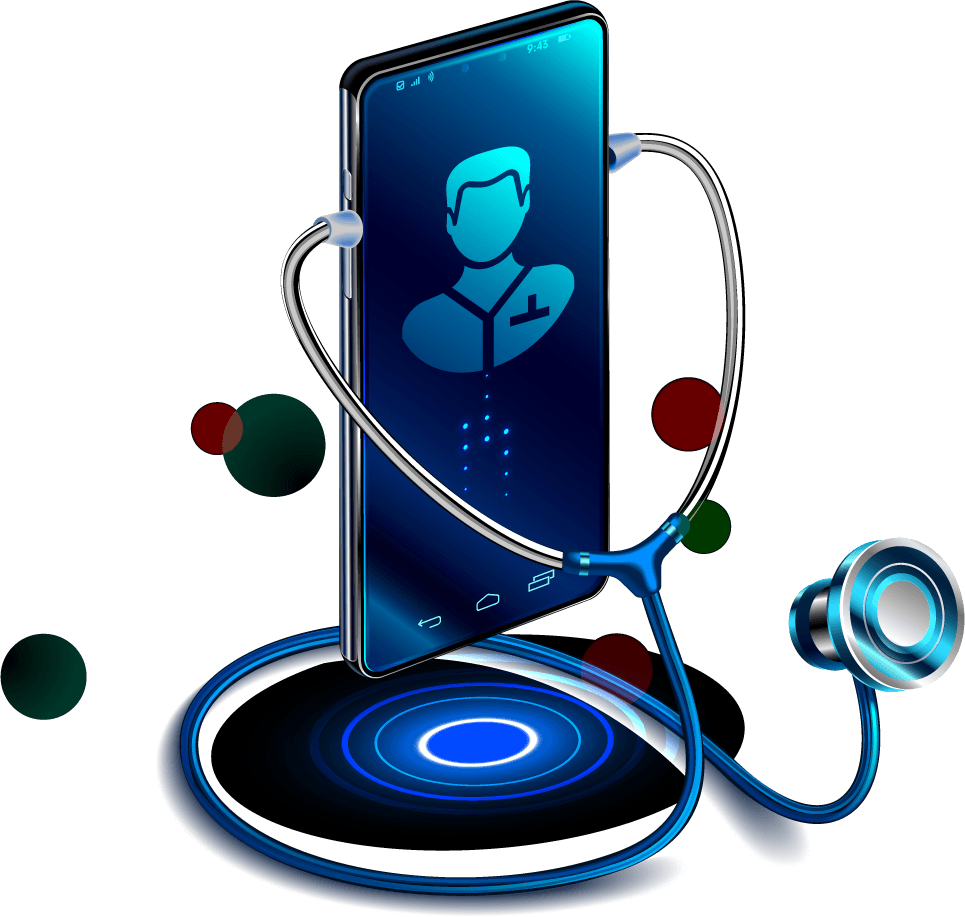Blockchain development for Healthcare
Improve the effectiveness and productivity of healthcare provisions by employing blockchain technology to ensure data privacy, streamline data sharing.

Top health industry issues
Compared to other industries, the healthcare sector has been slower in adopting and implementing new technologies and applications.



The contemporary healthcare industry faces a range of challenges including issues such as:
- Micropayments
- High cost of new innovations
- Lack of access to advanced treatments
- Errors in prognosis
- Overdiagnosis
- Drug traceability
- Poor healthcare data management
- Data security in clinical trials
- Medical device tracking
- Patient records
The utilization of blockchain technology in healthcare can provide benefits such as enhanced integrity of data exchange, efficient management of consent, real-time sharing of data, secure record keeping, and more precise data.
SmartBlocks' proficient team recognizes the potential of blockchain technology in revolutionizing healthcare, as demonstrated by its implementation in use cases such as these:
Micropayments
Blockchain in healthcare facilitates micropayments without the involvement of a third party, allowing for a direct, trackable flow of transactions. Additionally, it has applications in developing rewards programs for patients who attend appointments, contribute their data to clinical trials and research, and follow medical care plans.
Accelerating R&D
Blockchain technology streamlines and expedites R&D in healthcare, boosting innovation, reducing costs for pharma and medtech companies, and rapidly processing R&D data from research labs worldwide. It leverages transparency, auditability, and accountability to benefit from the expertise and knowledge of medical practitioners and researchers worldwide.
Medical device tracking
Blockchain enables healthcare device tracking throughout the device lifecycle, from manufacturing to decommissioning. It provides a complete history of the device’s location and all the relevant data associated with it, including manufacturer, reseller, serial number, repair history, and other pertinent information.
EHRs and EMRs
Blockchain technology for health records management enables patients to manage their own healthcare data, providing access to past and present ailments, treatments, and family medical histories to doctors, hospitals, healthcare providers, and laboratories. A securely-stored single version of the record cannot be accessed or modified without authorization.
Healthcare data sharing
Blockchain technology ensures the integrity of data exchanges among healthcare providers, patients, and third parties, such as insurers, through real-time data sharing, compliance with global standards, and regulatory compliance. It also allows individuals to take responsibility for their healthcare, reduces costs, and increases efficiency in the healthcare industry.
Clinical trials
Blockchain technology enhances transparency and trust among stakeholders, reduces auditing costs, and improves management of pharmaceutical supply chains, including manufacturers, packagers, distributors, dispensers, and regulators. It records critical details such as manufacturing locations, shipping dates, batch numbers, expiry dates, storage temperature, and unique identification numbers.
Drug traceability
Blockchain applications mitigate the growing risk of counterfeit or unapproved drugs. Transactions are timestamped, and drugs are registered by a smart contract, with pill containers being identified. The complete path of origin, integrated GPS, and chain-of-custody logging ensures reliable drug delivery.
Cutting-edge solutions

In what way is blockchain technology enhancing the quality of medical services in healthcare?
Data integrity
Interoperability
Healthcare excellence
Improved information security
Other Blockchain Solutions
Why work with us
Extensive expertise
HIGHLY-SKILLED DEV TEAM
All our tech solutions are built by the in-house cross-functional team. The strongest blockchain specialists on the market will be working on your project
CUTTING-EDGE SOLUTIONS
The SmartBlocks team is pioneering the frontiers of blockchain tech and employing it to drive your company’s success.